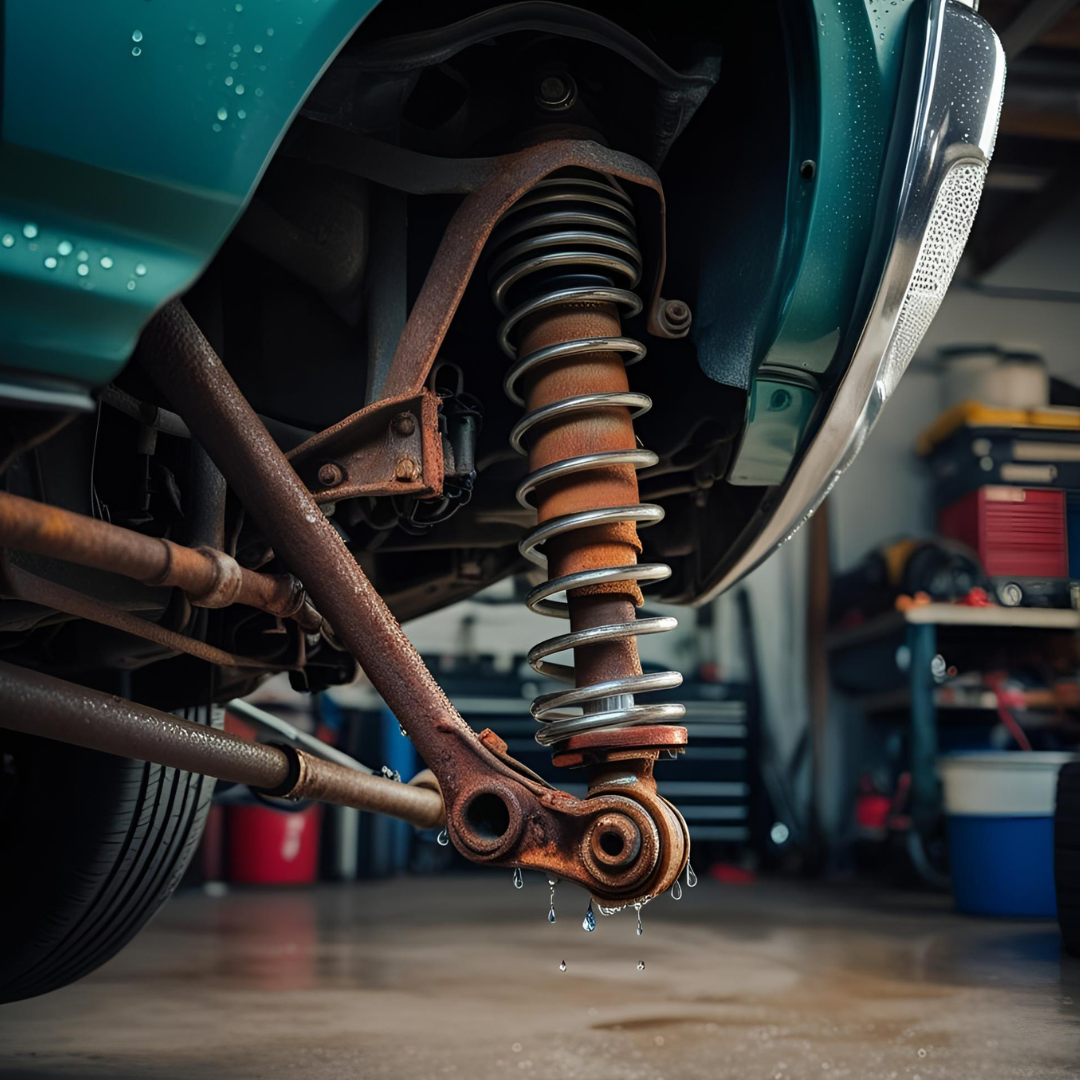
The Hidden Costs of Worn Suspension
Share
When bushings, joints, and linkages age, their deterioration often goes unnoticed—until performance degrades so much that you can’t ignore it. Here’s what happens under the surface:
-
Gradual Steering Drift
You may notice your car slowly pulling to one side, or that you need to “fight” the wheel to keep it straight. This isn’t just annoying; it’s a sign that costs add up in inefficient fuel use and uneven tire wear. -
Vague Turn‑In
When components develop play, there’s a tiny dead‑zone at the start of every turn. That means less confidence entering corners, especially in emergency maneuvers where every fraction of a second counts. -
Clunks, Squeaks & Excessive Vibration
Day‑to‑day driving becomes a cacophony of noises: bump stops thudding, bushings squeaking, and joints rattling. Those sounds are your suspension begging for attention—and warning you that something could break under stress. -
Uneven Tire Wear Patterns
Feathering, cupping, or “bathtub” wear patterns show up when alignment can’t hold under load. Replacing tires without addressing the root cause only kicks the problem down the road—literally.
Why a Complete Kit Outperforms Piecemeal Repairs
It’s tempting to replace only the parts that seem the worst, but here’s why a holistic approach is smarter:
-
Synchronized Geometry Restoration
All front‑end components share forces when you brake, steer, and hit bumps. Installing everything new at once resets all pivot points to their ideal positions, so suspension angles remain true to factory specs. -
Even Wear & Tear
New parts running alongside old ones force the fresh components to take on extra stress. Over time, you’ll find yourself back in the garage replacing those freshly installed pieces—defeating the purpose of the repair. -
Labor Consolidation
Disassembling the front suspension once to install every component saves significant shop time versus doing multiple “returns” for additional failures. For the home‑wrench enthusiast, it means fewer days parked on jack stands. -
Cost‑Effective Bundling
Purchasing a comprehensive kit typically reduces the per‑piece cost compared to buying items individually. Shipping and handling fees are often bundled, too, which lowers overall out‑of‑pocket expenses.
Deep Dive: How New Components Transform Your Drive
While we’re not listing each individual piece, here’s what a fresh front‑suspension assembly does for your car:
-
Sharper Steering Response
With zero play in joints and bushings, the steering wheel connects you directly to the road. You’ll feel every nuance of the pavement, making city driving and freeway lane changes more predictable. -
Reduced Body Roll
Solid new linkages keep body lean in check, so corners feel flatter and more controlled. That translates into less driver fatigue on twisty roads, and a more composed ride for passengers. -
Improved Brake Stability
Under hard braking, suspension helps transfer weight to the front wheels. Worn parts can flex excessively, leading to longer stopping distances and uneven pad wear. New components hold alignment under load, keeping braking consistent. -
Smoother Over Bumps
Fresh bushings cushion road impacts more effectively, isolating harshness from the cabin. You’ll notice fewer vibration hotspots and a quieter ride overall.
Best Practices for Installation & Longevity
-
Professional Alignment
Always follow a full four‑wheel alignment after suspension work. This ensures camber, caster, and toe angles are within specifications—maximizing tire life and handling precision. -
Use Proper Torque Values
Over‑ or under‑torqued fasteners can lead to premature failure or unsafe loosening. Stick to Toyota’s factory‑specified torque settings, and inspect threads for damage before reuse. -
Lubricate Critical Threads
Applying a light coat of anti‑seize on threaded joints (especially tie‑rod ends and ball joints) prevents corrosion and makes future servicing far easier. -
Inspect Surrounding Components
While you have everything apart, check strut mounts, wheel bearings, and brake lines for wear. Addressing those items during the same service window saves time down the line. -
Periodic Maintenance
Even the best‑built parts benefit from visual inspections every 12,000 miles. Look for cracked boots, leaking grease, or excessive play—and address problems early.
Conclusion: Invest Once, Enjoy Confidence for Years
A complete front‑suspension overhaul is more than just parts swapping—it’s a transformation of your Car dynamics. From everyday street driving to emergency maneuvers, you’ll feel the difference in steering crispness, braking reliability, and ride comfort. By tackling every critical component together, you avoid the domino effect of mismatched wear, save on labor costs, and lock in a balanced driving experience.
Ready to reclaim the precision and comfort your car was designed for? Embrace the full‑kit approach and drive with the confidence that comes from knowing every front‑end connection is brand new. Your next curve—and every mile in between—will remind you why suspension health matters.
